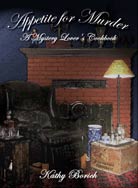Masquerade: Red Bean Pudding
Year Released: 2012
Directed by: Choo Chang-Min
Starring: Lee Byung-hun, Ryoo Seung-ryong, Han Hyo-joo
(Not Rated, 131 min.)
 “What the superior man seeks is in himself; what the small man seeks is in others.” Confucius
“What the superior man seeks is in himself; what the small man seeks is in others.” Confucius
Mark Twain goes Korean in this Asian version of The Prince and the Pauper. It’s a delicious stir-fry of elegant ritual spiced up with palace intrigue and bawdy humor. But there’s a lot heart here, too, largely construed through the superb acting gifts of its star in a dual role, playing the both king and his commoner double.
When sixteenth century Korean King Gwang-hae (Lee Byung-hun) suspects someone is trying to poison him, he sends his Chief Secretary (Ryoo Seung-ryong) to find a double to sleep in his bed. The king’s double, Ha-sun, has been earning his living doing just that, portraying the king in some off color comic renditions for drunken nobles.
All too soon, however, Ha-sun will have to drop the comedy act to play the serious role of king, since someone has gotten to the real monarch – not quite poisoning him, but drugging him with such a potent dose that he is out of commission for a while.
The Chief Secretary gives him a crack course on kingly behavior, which consists mostly of saying, “Do what you think is right” to the courtiers who solicit him. That, and lowering his voice a few notes to achieve more kingly gravitas.
Our kingly double gets through his first official meeting well enough, but it is the little cultural issues that trip him up. One is the absence of a toilet, our poor Ha-sun having to go through two painful days until his Secretary tells him to ask for the Plum Blossom Pot. To his total embarrassment, the king must perform this “duty” in the presence of the female who has brought it to him. ‘Congratulations, your Majesty,” she tells him when he has used the royal commode, that chant being echoed by a complete staff of servants waiting behind the curtain which then opens. It’s just about as bad as the courtly crew gathered around the nuptial bed of poor Marie Antoinette and Louis, clamoring for the bloody sheets, etc.
Another transgression occurs when the king’s double dutifully eats the large meal brought to him by a cadre of servants. Only later does he find out that the servants are allowed to cook solely for him; they must subsist on his leftovers. From then on, Ha-sun satisfies his hunger by eating only the simple red bean pudding, leaving the rest of his sumptuous meal for them.
The court takes these little transgressions in stride, but when Ha-sun starts to take his role seriously, the trouble starts. He begins to make sound judgments himself, instead of relying on “Do what you think is right” advice, and he actually gets to know those who serve him, learning their tragic histories and vowing to do something about it.
Actor Lee Byung-hun is known mostly for his tough guy roles. American audiences will remember him as Storm Shadow in G.I Joe: The Rise of Cobra, and a few Asian film lovers will recall his turn as villain in The Good, the Bad and the Weird. Even as a bad boy in that film, one couldn’t help but love him a little bit. As Different Drummer said then,
First to make his appearance is Chang Yi, the Bad, but never has bad carried itself with such rock star style. His carelessly shorn hair drapes over one eye, making one wonder how he manages to kill so efficiently. Or how he keeps his pinstriped suit so meticulously clean in his dusty brawls.
In Masquerade, Lee Byung-hun shows another side of himself, equally adept as the aloof king, the comic buffoon impersonator, and finally earning respect as his sense of fairness and empathy inspire loyalty even in those who know he has no royal blood.
The real masquerade, the audience may well conclude, is what kings and their corrupt council perform in the name of justice. For a little while, at least, we see things as they might have been.
–Kathy Borich
Trailer
Film-Loving Foodie
Kingly double Ha-sun’s abandonment of all the culinary delicacies in favor of the lowly red-bean pudding that reminds him of his mother is the anchoring symbol of the whole movie. The unadorned life, the simple pleasures hold more than the rich luxurious life.When he asks who has cooked this dish, the lowly food taster, Sa-wol, comes forward. In getting to know her and her tragic history, Ha-sun begins to learn the what distinguish true kingship – caring for his subjects.
Don’t be shy about a pudding made from red beans. This sweet little dish is as delicious as it is good for you. Enjoy.
Red Bean Pudding
First a few words from Christine, our recipe source:
Red beans are very nutritious food. They are low in fat and calories while high in protein, fiber, and minerals. Not only do I like their nutrition, but also their tender texture. They are good ingredients for dessert, especially for Chinese steamed ones. You might find this red bean pudding in some vintage Chinese restaurants or vegetarian restaurants. The red beans inside their puddings might be less than you want though. So, do-it-yourself at home would be the best way of tasting perfect red bean pudding because you could tailor-make the pudding with the exact amount of red beans you like.
There are various types of red beans. Keep in mind that the Azuki beans are commonly used in Chinese dessert, not the (Red type) ricebeans which are the correct ones for traditional Chinese medicine.
Ingredients:
1 cup red beans
1 cup white sugar
1/2 cup rice flour
1/4 cup wheat flour
1/4 cup corn flour
1/4 cup vegetable oil
4 cups water
Method:
Bring 3 cups of water into a boil. Add red beans, covered. Lower heat to medium-low and cook until red beans soften. Check the water level and replenish, if necessary, with boiling water. There should not be too much water left when the red beans are cooked and become tender (see picture shown).
While cooking red beans, combine rice flour, wheat flour, corn flour, sugar and oil with 1 cup of water. Pour into the cooked red beans.
Cook the mixture over medium heat. Stir constantly.
Transfer mixture into a greased tray, 8-inch round. Steam over high heat with lid on for 1 hour. Test with a chopstick or toothpick. If it comes out clean, the red bean cake is cooked through. Cool completely. Cover and chill for at least 3 hours, or until set. Cut into pieces to serve.



 Classic & Crime
Classic & Crime